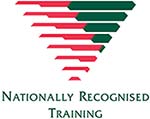Earn and learn as you build lifelong carpentry skills
The building and construction industry needs qualified carpenters and builders to support new projects across the domestic, commercial and government sectors.
A carpentry apprenticeship provides you with hands-on, industry-specific training. It gives you the opportunity to earn while you learn. It also prepares you to work on a diverse range of projects across the domestic and commercial construction sectors.
This nationally recognised qualification may lead to employment in roles like carpenter, builder or foreperson in residential or commercial construction.
As an apprentice, you'll work with your employer in the industry. You'll also come to our state-of-the-art multi-trade workshops or workplace training campuses for formal training.
Get the support you need through the Certificate III in Carpentry that combines both theory and practice. Learn in trade environments from industry-experienced teachers.
You'll learn how to build wall frames, eaves, pitched roofs, and ceiling frames, as well as how to measure, calculate, excavate, scaffold, and work safely at heights. You'll also cover setting out, handling carpentry tools and materials, levelling, concreting, demolition, flooring installation, workplace safety, and interpreting plans.
Once you've successfully completed the Certificate III in Carpentry, you can extend your skills by studying Chisholm's Certificate IV in Building and Construction (Building). This can start your pathway to a registered builder.
- Course code
- CPC30220
- Delivery location
- Berwick, Dandenong, Frankston, Mornington Peninsula, Workplace
- International
- Not available for International students
- Length
- Part Time, 3 years.
- Start dates
- February, March, April, June, July
Please note: Students may be required to undertake an assessment of their literacy and numeracy as part of their application process.
 Chisholm is a Registered Training Organisation (RTO) and provides Nationally Recognised Training (NRT). This means you can be assured that our training will provide you with a qualification that is recognised and respected across Australia.
Chisholm is a Registered Training Organisation (RTO) and provides Nationally Recognised Training (NRT). This means you can be assured that our training will provide you with a qualification that is recognised and respected across Australia.
Chisholm courses are subject to minimum and maximum group numbers. Courses may be cancelled or postponed if minimum numbers are not achieved by the start date of the course. Courses may close prior to the start date if the maximum numbers are reached. In that situation, eligible applicants will be offered a place in the next available intake.

